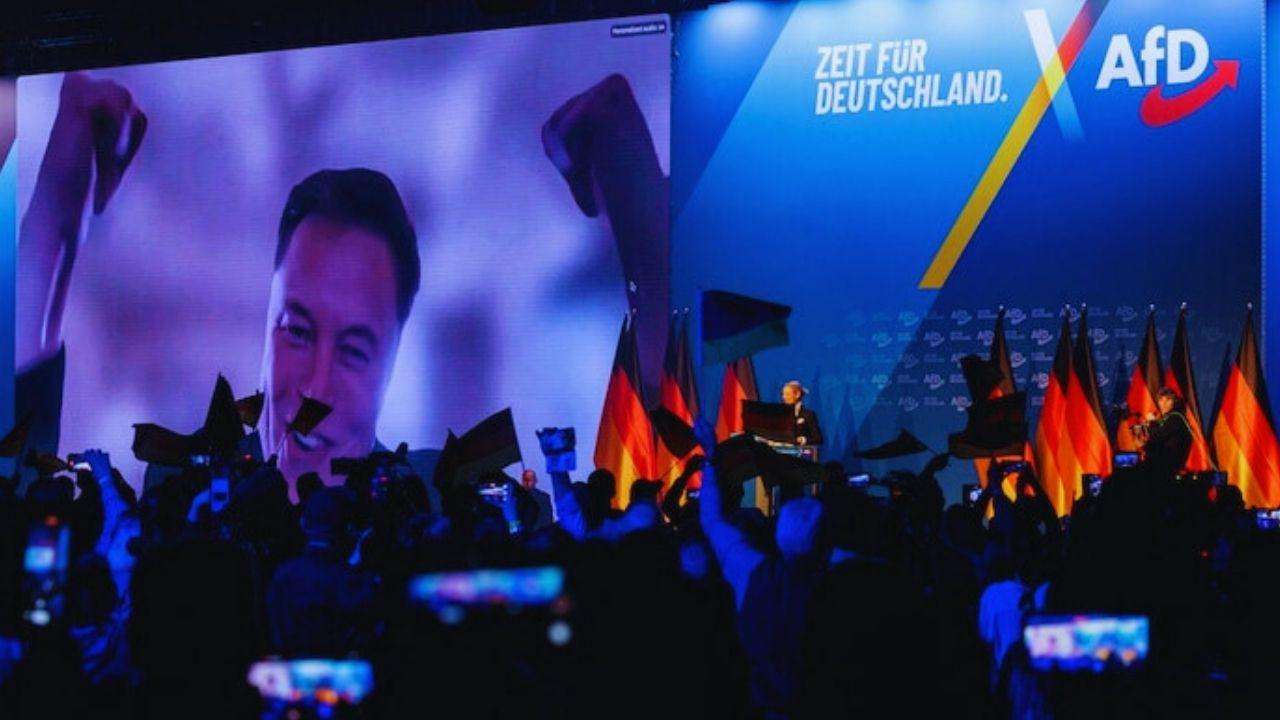When a young German anti-climate activist, often referred to as the “anti-Greta Thunberg,” began engaging with Elon Musk on X, few could have predicted it would lead to the tech billionaire endorsing Germany’s far-right. Yet, within just ten months, it did.
As Germany prepares for elections, there are concerns that the Alternative for Deutschland (AfD), a party partially classified as far-right extremists, could secure nearly a quarter of the vote. Musk, now a Trump ally, has openly backed the AfD, calling it the only party that “can save Germany.” He has also interviewed AfD leader Alice Weidel, spoken at an AfD rally, and published an op-ed in support of the party.
Most of Musk’s commentary on German politics has been through English-language platforms, often focusing on migration despite a decline in migration figures last year. His posts have frequently disregarded factual accuracy.
German leaders, including Chancellor Olaf Scholz, have criticized Musk, with Scholz calling him a “troll.” Friedrich Merz, the likely future chancellor, has vowed to push back against Musk if elected. Meanwhile, Dirk Wiese, a politician from the centre-left SPD, has accused Musk of using his influence to spread misinformation and populist narratives. Defense Minister Boris Pistorius has also condemned Musk and U.S. Vice President JD Vance for undermining German democracy.
The concerns stem from Germany’s “Brandmauer” policy, established after World War II to prevent the resurgence of fascism. However, Musk has admitted that before his first exchange with Naomi Seibt, the German influencer in April 2024, he was unaware of the AfD.
Seibt, now 24, has spent years cultivating a far-right audience, initially through climate change denial with the U.S.-based Heartland Institute. She later shifted focus to opposing feminism, Islam, and what she calls the “woke mind virus.” She has also downplayed Germany’s historical responsibility for its Nazi past.
She first caught Musk’s attention in April 2024 by posting a meme praising him for resisting censorship. Musk responded within minutes, saying, “Doing our best.” This was his second public remark about Germany, after previously describing a migrant rescue operation as having “invasion vibes.”
Following their first exchange, Seibt claims Musk began researching the AfD. In June, he publicly questioned why the party was labeled “far-right,” stating that its policies did not seem extreme to him. This came after Seibt had endorsed the AfD on X.
Since mid-July, Musk has interacted with Seibt at least 47 times, frequently retweeting her posts. Meanwhile, Seibt has mentioned the AfD over 360 times since January 2024, with her activity intensifying in recent months. Thanks to Musk’s amplification, her posts have been viewed over 146 million times. Her follower count surged from 74,000 in April to over 400,000 by mid-February—an increase of 442%.
Seibt herself has acknowledged the power of English-language content on X, stating on Telegram that international exposure made it easier to gain attention. Musk’s retweets of controversial events, such as protests in Germany advocating for Sharia law, have further fueled online discussions.
By late 2023, Musk’s posts about Germany and the AfD increased significantly. In December, he explicitly endorsed the AfD, stating: “Only the AfD can save Germany.” This came on the same day as a Christmas market attack by a Saudi-born man with AfD sympathies. When speculation about the attack’s motives contradicted the AfD’s narrative of Islamic terrorism, Musk argued that Germany was suffering from “suicidal empathy” for failing to deport the attacker earlier.
Since then, Musk has continued promoting AfD-related content, often focusing on migrant-related violence. His engagement mirrors his involvement in UK politics, where he has amplified far-right figures and made inflammatory claims about criminal cases.
Musk’s support for the AfD became more direct in January 2025 when he hosted an interview with Weidel and later spoke at an AfD campaign event, urging Germany to move on from its historical guilt.
While the true impact of Musk’s actions on the upcoming election remains uncertain, research suggests his endorsement has significantly boosted Weidel’s online presence. A study from the Humboldt Institute found that Musk’s retweets dramatically increased the visibility of AfD content, though this influence seems limited to X, with little spillover to other social media platforms.
The AfD’s rise predates Musk’s involvement, driven by Germany’s economic struggles and a series of recent terror attacks that have fueled anti-immigration sentiment. However, Musk’s acquisition of X in 2022, and the subsequent loosening of content restrictions, provided Germany’s far-right with a major platform.
For Wiese, Musk crossed a line when he turned X into a hub for right-wing conspiracy theories. He argues that misinformation weakens social cohesion and can sway elections. “Germany will stand firm against any form of foreign interference and disinformation,” he warned.
Musk and X have been approached for comment..



_4.jpg)




.svg)



_5.jpg)